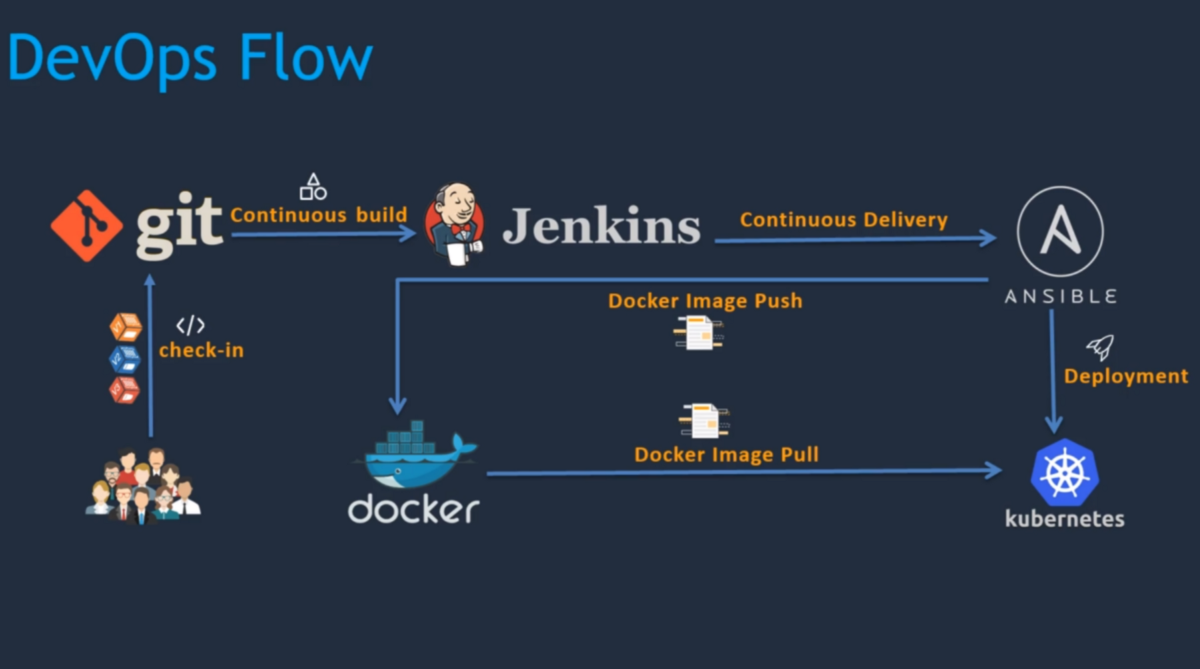A division between IT operations and software development teams caused many problems in the production process. Then came DevOps, which was based on Agile techniques and integrated both teams to boost productivity and improve collaboration.
DevOps has many different definitions, and it encompasses a broad range of concepts. It is generally agreed that continuity and automation are essential elements of DevOps, and specific DevOps tools help team members implement those elements as efficiently as possible.
Although the tools your organization uses will be determined by its particular needs, these are some of the best DevOps tools around.
Before we go on Bets DevOps tools, want to learn about DevOps? You can visit Best DevOps Online Training in Hyderabad by TekTutes, where you can learn one of the finest DevOps courses and become a master.
Now we can go on Best DevOps Tools:
Table of Contents
Here is the List of Best DevOps Tools
Docker
The DevOps tool, Docker, is a Linux-based open-source platform that focuses on containers. When using Docker, you’ll have a single package that contains everything you need to deploy your software—no need to manage dependencies separately. It includes various features, including support for several languages and great integration with several other tools, such as Jenkins, Ansible, and Bamboo. Forrester cited Docker as one of the top enterprise container platform providers during the fourth quarter of this year.
Ansible
DevOps tool Ansible is easy to use yet capable of handling highly complex implementations says CIO. This open-source tool automates software provisioning, configuration management, and application deployments. Additionally, it is agentless and uses a simple syntax written in the YAML language. NASA uses Ansible.
Git
Git is used by industry giants such as Microsoft, Amazon, and Facebook as a DevOps tool. Your development work can be tracked and coordinated among team members. In Git, you can experiment because you can restore old versions of your work or create a branch and add your features later. As well as hosting the job in a repository, like GitHub, you’ll need to host it on your own server.
Puppet
Puppet is a configuration management tool that manages and automates software inspection, delivery, and management. It can be easily integrated with many other platforms and has a solid track record. You should use Puppet Enterprise if your projects need to run multiple teams and involve thousands of resources, while the free version is great for smaller projects.
Chef
This open-source configuration management tool allows you to transform infrastructure into code that lets you manage data, attributes, roles, environments, and more. Puppet competitor It integrates easily with cloud-based platforms and supports multiple platforms. Chef works with any size infrastructure, automating infrastructure and application deployments and managing configurations across your network.
Jenkins
Jenkins is an open-source tool for testing and verifying code, and it allows you to report changes almost in real-time. It is widely used for automating the delivery pipeline. Jenkins has a massive plugin ecosystem (over 1,000 plugins), so all DevOps tools can use it right out of the box. Plus, it works on Windows, Mac OS X, and Linux.
Nagios
Among the most popular free, open-source monitoring tools, Nagios is widely used to find and fix network and infrastructure problems. Nagios XI is something like Nagios Core, but with many more features. Nagios lets you monitor applications, services, protocols, and more while keeping track of things like failures and outages. Support is available in both editions.
Splunk
All team members can access and utilize machine data and logs since Splunk makes them accessible and usable. Machine data contains lots of info that can improve productivity and efficiency, but it is hard to visualize without a tool like Splunk. Splunk developers can build custom applications and integrate Splunk data into other applications. The company itself has won several awards and is among the Forbes Digital 100 list.
Bamboo
Bamboo is similar to Jenkins but isn’t free. It comes with built-in features, so you’ll have fewer plugins because you won’t need them. Bamboo also has a very intuitive user interface with tools such as auto complete. Bamboo can save you a lot of time than open-source tools, depending on what you’re trying to accomplish.
ELK Stack
Those tools are actually the two search and analytics engines that are really used together: Elasticsearch and Logstash. Elasticsearch is managed by Elastic. Elasticsearch stores the data while Logstash collects the data from various sources. Kibana visualizes the logged data. Together, they are commonly used in centralized logging environments. Several ELK plugins are available and an active support community to make the stack robust but straightforward.
DevOps is a great career because you’ll constantly be integrating new technologies and solving new challenges. But it’s more than just exciting; it’s well paid. On PayScale, the average salary of a DevOps engineer was listed at $91,187; on Glassdoor, however, it is reported that the average salary for senior DevOps engineers is $173,848, which is almost double the $141,187 average.
Visit TekTutes now and attend our live demo.












